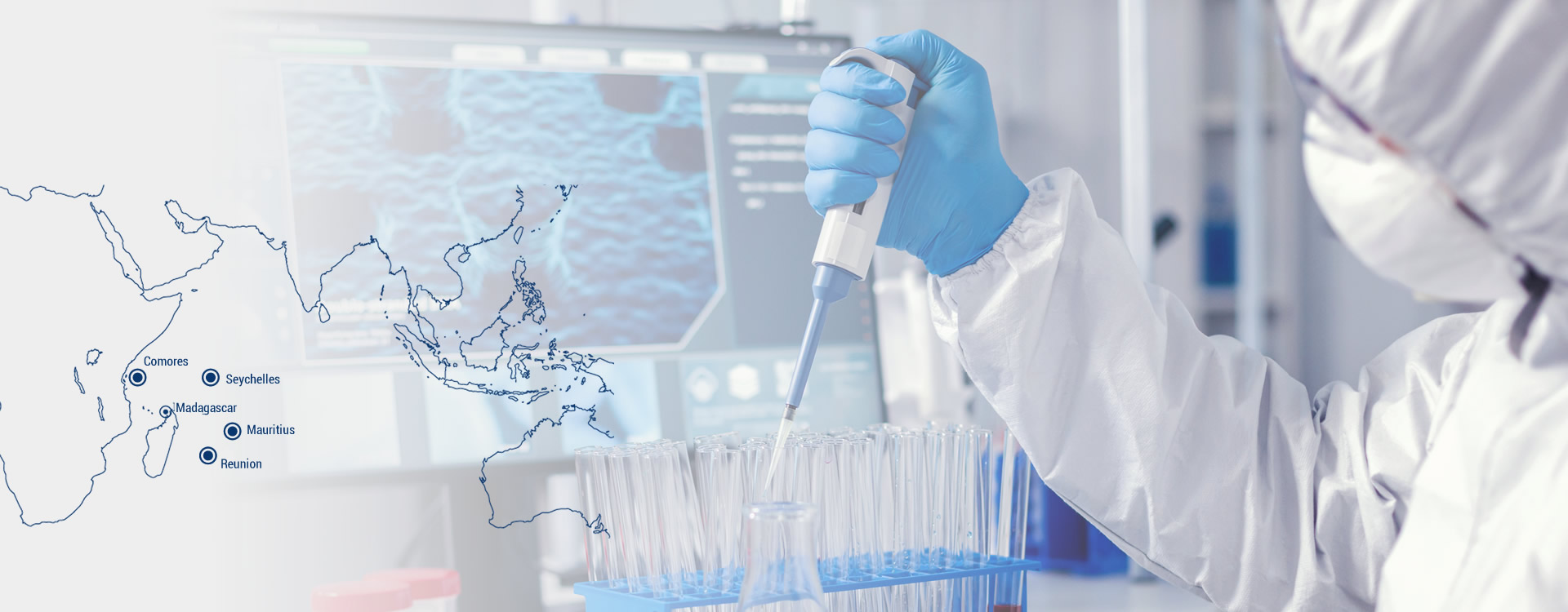COI-LABS is the network of official food and agricultural input testing laboratories of the Indian Ocean Commission (IOC) member states. This network was created as a result of the IOC member states' desire to implement cooperative initiatives aimed at strengthening food and agricultural input testing capacities at the national and regional levels. This initiative is part of the Indian Ocean Commission's Strategic Development Plan 2023-2033, and in particular its pillars 1 "An Indian Ocean of resilience, peace, and security," 2 "An Indian Ocean of integrated, sustainable, and innovative economic development," and 3 "An Indian Ocean of inclusive human development."
It aims to support national and regional policies aimed at improving food safety in order to protect consumer health and facilitate trade and the development of sustainable agricultural and food production sectors for the region. This initiative arose from the observation made by the heads of official laboratories and private laboratories operating under public service delegation in the Comoros, Madagascar, Mauritius, and the Seychelles. Meeting at a regional consultation workshop in Mauritius in June 2023, as part of the SANOI program funded by the European Union, they reaffirmed the need to deploy food analysis capabilities to provide reliable information to consumers, governments, and economic operators regarding the compliance of food products with sanitary and phytosanitary requirements.
They wished to form a network to facilitate the cooperative actions they plan to undertake, such as:
- The creation/maintenance of a technical tutorial collection site, linked to a mechanism for identifying available technical skills and a regional training program designed to strengthen them.
- The organization of technical sessions and training via videoconference and the facilitation of a scientific personnel exchange mechanism to lay the foundations for a mutual recognition process.
- The implementation of a possible group purchasing mechanism for equipment, consumables, maintenance services, participation in proficiency testing, etc.
- Providing network member laboratories with in-depth expertise in priority areas.
- Holding expert consultations capable of providing opinions on technical issues related to the deployment of other components of the regional health security policy, particularly in connection with the development of risk analysis capacity capable of operating in collaboration with equivalent international institutions.
- Enabling the network to be informed of health alerts affecting the region, so that network laboratories can prepare to provide a coordinated response to any crises that may arise.
